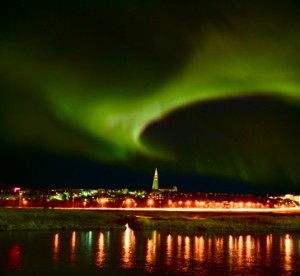Note: Arnaldur Indridason has twice been WINNER of the Glass Key Award for Nordic Crime Novels and has once been a WINNER of the Gold Key Award of the Crime Writers Association.
“At last the curtain went up, the auditorium unfolded; [the boy] felt glorious seeing all the people watching him and his shyness vanished in an instant…The choirmaster raised his arms. Silence descended…and he began to sing with the clear, sweet voice that his father had described as divine.”
 The boy with the divine voice has grown up, as this novel opens, and his life has changed even faster than his voice. Now forty-eight, former choirboy Gudlauger Egilsson has been working for a Reykjavik hotel as a doorman, general handyman, and during this holiday season, as the hotel’s Santa Claus. For many years he has lived in a small room in the basement of the hotel, leading a solitary life with no connection to his family. When Inspector Erlendur of the Reykjavik police is called to his room by the hotel, however, he finds Santa in decidedly compromising circumstances, his costume in disarray, and a knife protruding from his chest. With the dark humor that he has made his trademark, Icelandic author Arnaldur Indridason describes the murder scene and the reaction of his assistants to it, and even prissy readers will be amused by some of their reactions and comments about this dark and ironic scene. And when Erlendur, who has no plans for Christmas, helps himself to the exotic holiday buffet upstairs, enraging the chef, this wild and darkly funny noir novel takes off, filled with terrible crimes committed by seemingly innocent people.
The boy with the divine voice has grown up, as this novel opens, and his life has changed even faster than his voice. Now forty-eight, former choirboy Gudlauger Egilsson has been working for a Reykjavik hotel as a doorman, general handyman, and during this holiday season, as the hotel’s Santa Claus. For many years he has lived in a small room in the basement of the hotel, leading a solitary life with no connection to his family. When Inspector Erlendur of the Reykjavik police is called to his room by the hotel, however, he finds Santa in decidedly compromising circumstances, his costume in disarray, and a knife protruding from his chest. With the dark humor that he has made his trademark, Icelandic author Arnaldur Indridason describes the murder scene and the reaction of his assistants to it, and even prissy readers will be amused by some of their reactions and comments about this dark and ironic scene. And when Erlendur, who has no plans for Christmas, helps himself to the exotic holiday buffet upstairs, enraging the chef, this wild and darkly funny noir novel takes off, filled with terrible crimes committed by seemingly innocent people.

As the investigation is described during the five days leading up to Christmas Eve, Erlendur decides to check into the hotel and stay there. He has no reason to want to return home during the holiday, but as his personal life is unfolding, his estranged daughter Eva Lind arrives at the hotel to ask him to help her bury her stillborn child, a premature victim of her own drug use. At the same time that Erlendur and his people are investigating Gudlaugur’s death, they are also investigating the assault on Addi, an eight-year-old boy, beaten and injured so badly that that he has been hospitalized. The cases are not simple, and before long, Erlendur is also investigating a prostitution ring that he believes is operating out of the hotel, the secret life of Gudlaugur (Gully) from childhood to age forty-eight, the life of the 8-year-old boy who has been beaten, and his own memories, which have tormented him since the age of ten.

Christmas Carols in Reykjavik
The novel becomes complex as the main characters’ inner “voices” become clear, the voices we all have inside which tell us who we are and where we came from, the inner voices that remind us constantly of what we have done wrong in our lives, even when others do not blame us or regard our actions as our personal failures. Here Erlendur returns to his own past, as he also did in The Draining Lake, examining his own failure at age ten to save his eight-year-old brother when they and their father became lost on the mountain during a snow storm. Erlendur was eventually found, his brother was not, and to the present day, Erlendur is still reliving the trauma. Gudlaugur’s family history includes a father who was determined the choirboy would be a star, though the boy was bullied in school because of his success as a singer. The father never recognized his son’s inner needs, and both were devastated when the boy’s voice suddenly changed. Puberty also brought frightening new inner voices to Gudlaugur, voices that caused him misery until the day he died, misery which was only partly assuaged by his identification with “The Little Princess,” a 1939 film starring Shirley Temple. Addi, the eight-year-old who has been beaten, is so traumatized that he loses his voice for days, refusing to talk to anyone in the outside world.

In the meantime, other people sometimes see weakness and try to exploit it for their own gain. A record collector wants the rare recordings which Gudlaugur has made, Gudlaugur’s estranged family wants money, hotel employees exploit weaknesses in the system in order to profit from it themselves, and other characters turn out to be quite different from what Erlendur and the reader have come to expect. To complicate matters even more for Erlendur, he has, once again, started to feel a connection to a new woman and has begun to imagine a future for himself.
The novel has some genuinely humorous dialogue and scenes, more than I’ve seen in other books in the Erlendur series, but overall, it is just about as bleak and as filled with personal misery as those other dark novels. Indridason has created a powerful and psychologically intense novel in which characters develop slowly, their problems revealing themselves inexorably as mysteries unravel and are then either resolved or suddenly understood by the reader. The novel is filled with unexpected twists and turns, and ironies abound. The reader, however, must await any resolution of Erlendur’s own problems with his estranged children, Eva Lind and Sindri Snaer, which may be developed further in future novels.

Northern Lights over Reykjavik
As always, Indridason creates scenarios in which the cold, dark winter in Iceland adds to the gloom and increases the sense of claustrophobia on this island where the sun seems to shine so rarely. As the author himself says of winter, quoting from poet Friedrich Holderlin, “The walls stand speechless and cold, the weathervanes rattle in the wind.” His sensitivity to mood and his ability to create sometimes mordant dialogue which reflects both personal feelings and an inherent awareness that nature is a powerful force against which humans must contend on a daily basis make his novels both vividly imagined and often overwhelmingly sad. At the same time, however, there seems to be a sense of ironic humor which places even terrible events into some context which allows people to deal with them, however upsetting they may be. The dark humor which pervades parts of this overwhelmingly sad novel is a characteristic which enlivens all of Indridason’s novels and makes them especially memorable.
ALSO by Arnaldur Indridason: JAR CITY, THE DRAINING LAKE, HYPOTHERMIA, OPERATION NAPOLEON, REYKJAVIK NIGHTS, INTO OBLIVION (2017)
Photos, in order: The author’s photo and an interview with the author may be found here: http://www.juliaspencerfleming.com
Christmas carolers in Reykjavik are shown on this site: http://christmas.visitreykjavik.is
The 1939 poster of the Shirley Temple film which Gudlauger enjoyed so much is from http://www.moviepowder.com
The photo of the Northern Lights appears on http://www.workitmom.com
